#police repression
Text
“Gary Wassaykeesic, a Land Defender from the Mishkeegogamang First Nation north of Thunder Bay has lived in Toronto for decades and is an Indigenous leader. He was arrested on January 30, 2022 for allegedly taking part in a solidarity action with Wet’suwet’en on November 21, 2021 in Toronto. He was required to report last week to an isolated CP Rail police detachment in Scarborough. Beyond these disturbing facts is the story of a cultural group still being criminalized and harassed on their own land, but also the story of a diverse community determined to unite in support and resistance.
Criminalizing Indigenous sovereignty and solidarity
Coastal GasLink (CGL) is currently constructing a pipeline through Wet’suwet’en Territory without any consent, and the Hereditary Chiefs have sent an eviction notice to CGL. As they explained, “Coastal Gaslink has violated the Wet’suwet’en law of trespass, and has bulldozed through our territories, destroyed our archaeological sites, and occupied our land with industrial man-camps. Private security firms and RCMP have continually interfered with the constitutionally protected rights of Wet’suwet’en people to access our lands for hunting, trapping, and ceremony.” But instead of respecting Indigenous law, the RCMP enforced colonial law: on November 18 and 19, the RCMP raided Wet’suwet’en Territory using assault rifles, attack dogs, and even chain saws. They violently arrested over 30 people, including Land Defenders, supporters, legal observers, and journalists.
In response to the arrests in Wet’suwet’en, Land Defenders in Toronto went to the railroad on November 21. For two hours people blocked a train, sending a message of solidarity to those who’d been arrested. Though police were present at the blockade, at no point on that day did they express any concerns. They did not declare it an unlawful assembly and made no arrests. But a week later they began targeting organizers. The Toronto Police showed up at the home of Indigenous Land Defender, Vanessa Gray, and told her she had to turn herself in for attending that event. A week after that, they ticketed Miguel Avila-Velarde with a fine of over $600.
Police also began following Gary Wassaykeesic from November until the end of January. On January 30 they arrested him with those bogus charges that too many Black and Indigenous people find themselves charged with: “trespass and mischief”, the exact charges that colonial usurpers of this land have been guilty of themselves from the beginning. The police, and the mining companies, railroad companies, construction, and oil companies, etc. all tresspass on Indigenous land, then turn around and deliver harsh punishment against Indigenous people. Our government ignores treaties and human rights, including the right to thrive. It is so cruel and unjust to be routinely traumatized and criminalized like this repeatedly in your own homeland.
Gary spoke with me last week about the illogical charge of trespassing for an Indigenous person. Where else would he be? Where else should he be standing? This has always been the homeland of his people; and yet he has never felt any need to routinely arrest any of us for trespassing. We spoke about how governments have it all backwards since they are not the rightful authorities of this land. They have set themselves up as the legal and God-given authority, as if this entire country is their sole property when it never was. They’ve set up a network of violence to try to uphold this lie, doing everything to portray Indigenous people as if they are enemies for merely existing. This is wrong, and so is dragging out already nightmarish generational trauma into long-lasting, re-traumatizing, and unwarranted arrests.
Re-traumatizing arrest and legal support
Gary was strategically subjected to this lengthy drawn-out process of police harassment and intimidation tactics. Who gets arrested two months after an alleged criminal activity at an event where police voiced no problems in the first place? As Gary explained, “The Toronto Police stalked me, waited, and then arrested me, traumatizing me in the process. This has become the strategy of the Toronto Police. How many more others are they going to do this to?”
The timing of the arrest was also designed to increase harm and trauma: police arrested Gary after he led a vigil for the 93 children found in those unmarked graves at Williams’ Lake Residential School. They disrespected this community leader by callously arresting him right after this emotional memorial service, as he was mourning the tragic loss and discovery of mass-murdered children from his beloved community. Police heartlessness was a tactic as they watched, waited, and closed in on him shortly after the service ended, waiting until after he was separated from this gathering of fellow mourners. They timed it carefully, waiting until he took a streetcar home so they could storm onto the vehicle and violently pull him off in handcuffs. He was alone, but in front of strangers. Maybe some of the streetcar passengers could see the truth behind who was the real aggressor.
Then a month later police told Gary to report to an obscure, isolated location to get processed, hoping he’d have no real or supportive friends who would come to his aid. Gary had cooperatively provided his address to the police, but later noticed that his file stated he had “no fixed address”. What prompted their failure to make note of Gary’s actual address, and write those three words instead? They willfully replaced the facts with a mainstream stereotype (and this is falsifying police records, isn’t it?). The police wanted Gary to be deemed homeless by not recording his home address that he provided to them. Their omission added to their narrative to assume a mainstream stereotypical story about him having no friends who would care about him. Also, by characterizing him as homeless, they actually reveal the harsh truth of their intentions which indict themselves; if Gary and others of his community are experiencing homelessness, then this is entirely the fault of the colonial state which has literally stolen their homeland!
With all the harassment and legal persecution, Gary told me he’s so thankful for the group of friends and allies who showed up last week to accompany him in this continuing trauma. At least 10 of us waited for him outside, and one entered the building with Gary. When the officer demanded of her, “Why are you here?” Gary’s friend said, “I’m here to support him,” and added that she is a member of an international human rights organization. Upon hearing this, the officer decided to tone down his very intimidating attitude and lower his voice. Gary gave thanks for these caring communities willing to turn up for him, some people even risking incarceration themselves, no matter how cold and icy, no matter how early in the morning. He spoke with all his friends that day, old ones and new ones, some of whom he only just met that morning, many of whom will likely turn up to support him at his next painful court date.”
- Loretta Fisher, “Stop the police persecution of Land Defenders.” Spring Magazine. March 21, 2022.
#land defender#toronto#solidarity action#wet’suwet’en#coastal gaslink#rule of law#settler colonialism in canada#violence of settler colonialism#first nations#indigenous people#indigenous rights#treaty rights#loss of treaty rights#law and order in canada#thunder bay#northwestern ontario#mishkeegogamang first nation#police repression#political prisoners
2 notes
·
View notes
Note
Update on May 1st protests and how the french goverment handled them?

^ The May 1st protests were pretty violent esp. in Paris; two cops were set on fire (they're ok, one has 2nd degree burns), lots of destruction in city streets, and hundreds of injured protesters. The French gov is sticking to its M.O. of denying any police violence against protesters, emphasising protesters' violence and portraying it as mindless anti-democratic savagery rather than the result of their own anti-democratic policies.
There were more people protesting in the streets on Monday than at any other May Day protest in the past 20 years (by a large margin—7 to 10x more people than usual.) And the numbers are still impressive in terms of this current social movement—there were about 1.2 million people at the first protest against the pension reform in January, 900K at one of the February protests, around 1.1M on March 7 and I think 1.2M on March 23rd... We're in May and there were 800K people in the streets on Monday (using the police's probably low estimate). The first marches earlier this year were peaceful; people started destroying shit in March after the 49.3 (=the gov not letting elected representatives vote on the reform); in the following weeks we saw a brutal escalation of police violence + suppression of just about any means of non-violent protest, which results in more violence.
The vast majority of protesters are still peaceful, but in terms of providing context for the increased violence, well—people protested peacefully, peaceful protests got banned. People banged pots and pans, pots and pans got banned and confiscated. People started a petition on the National Assembly website which got a record number of signatures, the petition was closed before its deadline and ignored. MPs asked (twice!) for a national referendum on the reform to be held, their requests were denied. Electricity unionists cut power in buildings Macron was visiting, now he travels around with a portable generator. Unions tried to distribute whistles and red cards (penalty cards) to football supporters before the French Cup finale last week, so the ones who wanted could use them if Macron showed up (he ended up hiding and greeting the footballers indoors rather than publicly on the stadium lawn); the police prefecture tried banning union members from gathering outside the stadium to distribute these items (although the ban was struck down by the judiciary as it was illegal, like most bans these days...)
Confiscating saucepans was already so absurd it felt like a gratuitous fuck you, but now they're trying to prevent the distribution of pieces of red paper. Cancelling petitions that would have had no real impact anyway. Prosecuting people for insulting Macron. Arbitrarily arresting hundreds of nonviolent protesters to intimidate them out of protesting (guess who's left then?). The French gov is systematically repressing democratic or nonviolent means of making your opinion heard, and when people get more violent they're like "This is unacceptable, don't these terrorists know there are other means of expressing dissent??" Where? This week a 77-year-old man was summoned to the police station and will be forced to take a "citizenship course" for having a banner outside his house that read "Macron fuck you" (Macron on t'emmerde). Note that he would have been arrested (like the woman who was arrested at her home and spent a night in police custody for calling Macron "garbage" on Facebook) but they decided not to only because of his age.
So that's where we're at; on Monday two cops caught on fire (well, their fireproof suit did) after protesters threw a Molotov cocktail at them. (The street medic who tried to help them with their burns ended up getting shot by a cop's riot gun a few seconds later—with French police no good deed goes unpunished!) The media talked a lot more about this incident than about the fact that the cop who got most severely injured on that day (broken vertebrae) was injured by an explosive grenade that a colleague of his meant to throw at protesters (you can see it at the end of the video below). If police with all their protective gear get so badly injured by their own weapons, no wonder the worst injuries have been on the protesters' side. (nearly 600 injured protesters on May 1st, 120 severely, according to street medics.) I'm not including images of these incidents in the video but on May 1st a protester had his hand mutilated by a police grenade + a 17 year old girl was hit in the eye by a grenade fragment, may end up losing it (during the Yellow Vests protests, Macron's first attempt at repressing a social movement, 38 protesters lost an eye or a hand).
What you see in the video: cops charging the front of a march to tear a banner off people's hands then retreating and drowning the street in tear gas when protesters throw paint bombs at them (protesters have umbrellas because of police drones); at 0:30, a journalist saying "They're not even arresting him, just kicking him when he's down—they kicked him right in the face!" then police spraying with tear gas protesters who try to fend them off; at 0:46 when a protester being arrested asks a journalist if he's filming and starts reading out loud a cop's ID number, another cop shoves the journalist and throws him to the ground; at 0:54, an Irish journalist runs away from the police tear gas grenades that you hear going off, at 01:08, the incident mentioned above when a cop drops a grenade he tried to throw, which explodes in his group, breaking another cop's vertebrae.
There's a lot more I'm not including, like how CNN said "there's so much tear gas in Paris, our foreign correspondent can barely breathe", how another journalist was hit by a sting-ball grenade (he was also bludgeoned on the head so hard it broke his helmet—even though cops know the people wearing helmets are journalists...), and yet another journalist who was calling out a cop for aiming at people's heads with his riot gun (which is illegal) ended up having the guy aim the riot gun at his head from 2 metres away (getting shot with this "less lethal weapon" from that distance would be lethal.)
All of these videos are from May 1st (most of them from this account monitoring police violence.)
So yeah, nonviolent protests followed by violent police repression and bans of nonviolent means of protesting result in more violent protests. The French government responds by a) pikachu surpris, b) condemning violent protesters and praising violent police to the skies, c) continuing to ban everything they can think of. Confiscating saucepans didn't work but confiscating pieces of red paper will do the trick! Let's prosecute people for bashing or burning an effigy of Macron, because banning symbolic violence always works to prevent actual violence! And this week after the May 1st protests we learnt that the gov is thinking of making street barricades illegal, because that'll definitely solve everything. It's going to be interesting for history teachers to teach students about the 1789 revolution that allowed us to take down an absolutist regime and become a republic, under a government that banned barricades because they see them as terrorist anti-republican structures.
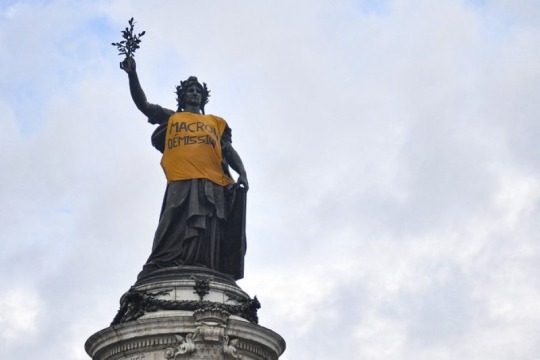
^ Statue symbolising the French Republic (on Place de la République in Paris) dressed with a 'Macron resign' shirt by protesters on May 1st.
#ask#frpol#left-wing MPs this week asked to hold a debate in the Assembly about the repression of this social movement#the Minister of the Interior (in charge of police) didn't come but sent his delegate instead#the delegate refused to admit to any problem with law enforcement and at some point walked out as a MP was asking a question#this happened 1 day after the UN Human Rights Council condemned the French gov's violent & racist law enforcement#god there's so much infuriating shit happening every single day
2K notes
·
View notes
Text


based on @goddammitjim’s The Truth That Once Was Spoken
I was wondering what your average theater kid would think watching CW on stage, especially as those two 😂
#anyway go read the fic it’s really good!!#codywan#obi wan kenobi#commander cody#star wars#my post#i now have a new blorbo and it’s a repressed police inspector played by an australian guy 5 years before i was born
75 notes
·
View notes
Photo

Cop City: Racist police terror continues in Atlanta
By Lev Koufax
On Jan. 18, police and officials demonstrated just how far they would go to secure the Cop City site for what is really a domestic military base. In short, they would kill to do so.
That day, a Georgia State Trooper executed a queer environmental activist of color, Manuel Esteban Paez Terán (known by the nickname Tortuguita.)
#StopCopCity#JailKillerCops#Atlanta#Georgia#protest#Tortuguita#martyr#lgbtq#environmentalism#police brutality#repression#arrests#JusticeForRayshardBrooks#BlackLivesMatter#Struggle La Lucha
275 notes
·
View notes
Text
Massive protest in Buenos Aires against severe budget cuts for free public universities. People sing "And now you see, and now you see, those who don't jump voted for Milei".
#i didn't take the best video#but i hope it's clear that this agglomeration I recorded here was not even close to the entirety of the people gathered up to protest#it was so massive you couldn't get to the plaza where the protest was meant to culminate#because there was so much people it was entirely occupied and it was physically impossible to advance#the subways were filled to the brim in both directions and you had to stand in line to use them. which NEVER happens#people who you could never even concieve of going to a protest were there. people ideologically opposed to protests were going.#people of all different political leanings were singing their own songs and suddenly united singing our national anthem in unison#you do NOT fuck with our public education. universidad gratuita pública laica y federal.#on a tangentially related note#there were basically no reports of repression even though they had been going crazy with police brutality in all the previous protests.#i think it's bc there literally weren't enough cops to handle this amount of people#a revolution is sounding reeeeeeally appealing right about now
33 notes
·
View notes
Text

Living in a police state means you're governed by criminals who ignore threats to public safety.
It turns out that the four terror suspects were from Tajikistan though living in Russia. This is essentially an internal matter. Putin's secret police were too busy murdering political opponents and harassing dissidents to be concerned about the threat of terrorism from within.
Moscow terror attack: Russian massacre suspects’ homeland Tajikistan is plagued by poverty and religious strife
Putin buddy Emomali Rahmon is Tajikistan's kleptocratic “Leader of the Nation” – essentially dictator for life. Like Russia, the country is undemocratic but holds sham elections for window dressing.
The pro-democracy organization Freedom House lists Tajikistan as a Consolidated Authoritarian Regime. It's a place only a dictator would love.
Tajikistan: Nations in Transit 2023 Country Report | Freedom House
#russia#vladimir putin#crocus city hall#terrorism#isis-k#police state#fsb#political repression#pedro x. molina#tajikistan#dictators won't keep you safe#владимир путин#путин хуйло#полицейское государство#диктатура#путлер#таджикистан#точикистон#эмомали рахмон#терроризм#россия#ФСБ#союз постсоветских клептократических ватников#руки прочь от украины!
17 notes
·
View notes
Text
they fucking missed an opportunity to have 13 come out as gay by the tardis didnt they
#i know she has that whole repressed thing going on which was kinda fundamental to the whole thing with yaz but like#fam: assumes no romance#13 talking abt the tardis: we kissed once when she was a woman#fam: woman math meme#'but she said she was a man so it wasnt gay then'#'shut up ryan thats not how it works'#'thats nOT HOW IT WORKS??? ITS A POLICE BOX'#'kids no fighting. we'll just ask her what she meant'#'we're not gonna ask her what she meant!! i dont wanna KNOW what she meant!'#'dont you wanna know if you have a shot though?'#'if it's SPACESHIPS i definitely dont have a shot'#'if it's /women/ spaceships tho...'
13 notes
·
View notes
Text
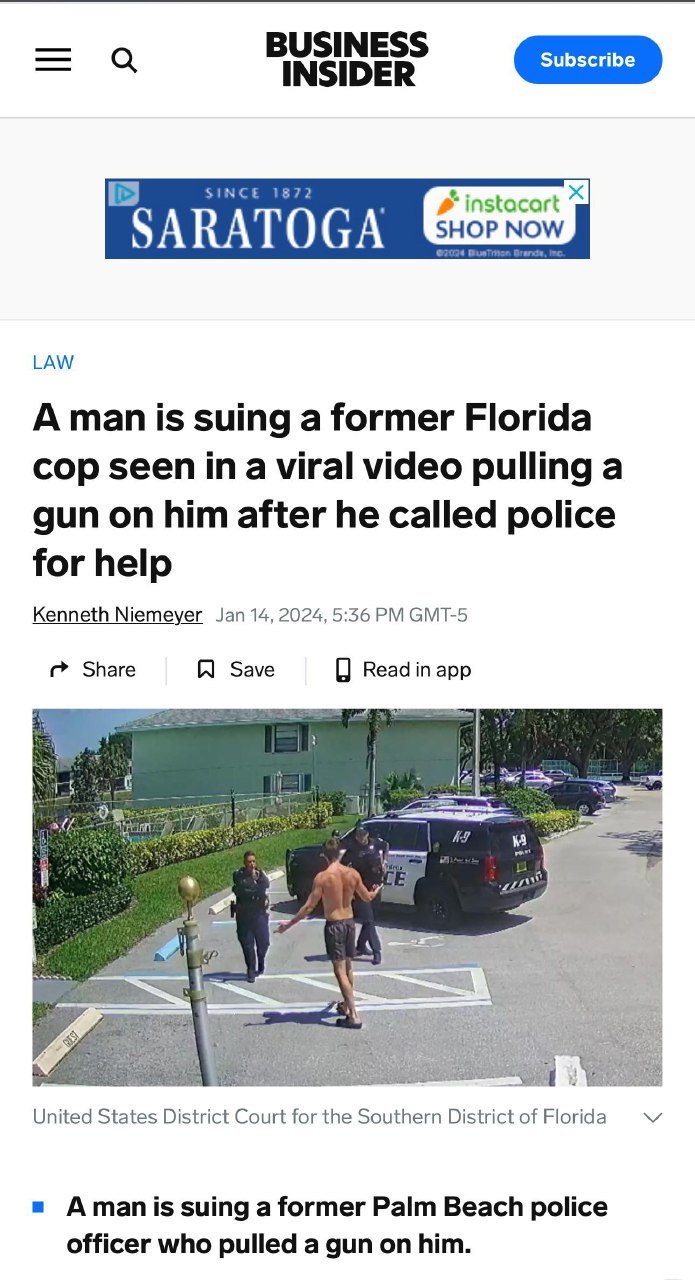
ACAB 🤦🏽
#florida#floriduh#usa news#usa#america#palm beach#all cops are bastards#all cops are bad#1312#acab#acab1312#ftp#fuck the police#fuck the cops#anti police#anti colonialism#anti cop#police state#police#defund the cops#cops#cop#class war#oppression#repression#fascism#neoliberal capitalism#capitalism#policebastards#joe biden
7 notes
·
View notes
Text
Alright, so who’s writing the Sainte Soline post?
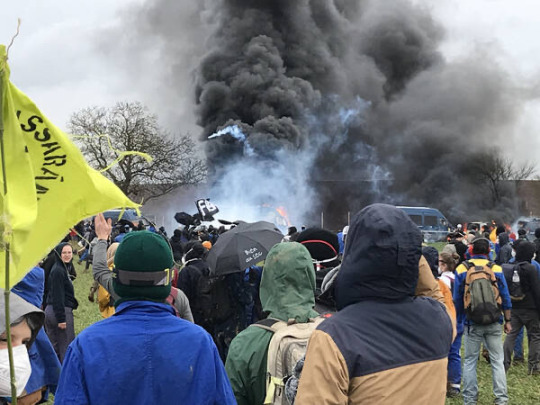

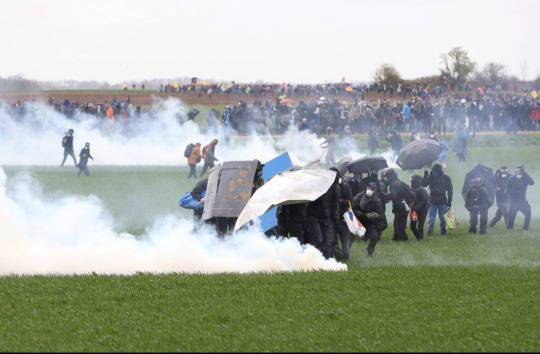

What did they think would happen sending 3000 paramilitary officers?
#sainte soline#les bassines#france#protests#environmental activism#ecology#repression#police violence#police brutality#violence#up the baguette
37 notes
·
View notes
Text
“The CGTU’s political bureau was deeply troubled by the lack of headway it was making with the unemployed. Yet again, it was the priorities of the international communist leadership, rather than direct contact with the unemployed, that prompted this concern. The CGTU leadership remained silent on the subject until the fifth congress of the Profintern (the Red International of Trade Unions). At this conference, French communists were accused of opportunism over social insurance. Responding to this criticism and their failure to build a movement amongst the unemployed, the Comintern favourite and ECCI member Maurice Thorez intervened at the next meeting of the CGTU political bureau on 22 September 1930. He insisted on the urgency of initiating a movement of the unemployed even if it were based on only fifty members in Saint-Denis.
The political bureau was confused about the relationship between the workplace and the unemployed, about unemployment insurance, and the current state of organization for the unemployed. Jacques Doriot, PCF Central Committee member and mayor of Saint-Denis, proposed creating groups for them in the big works like Renault, and directing them against both employers and the state. This would entail re-labelling communist cells around these workplaces, rather than forming a real movement of the unemployed. Only Pierre Semard knew of actual developments with local organizations in Paris and insisted on the importance of their links with factories. But it had clearly registered with CGTU officials that they were expected to set up a movement of the unemployed in line with ECCI perspectives.
Unemployment posed several problems. First, Desurmont observed that unemployment might depress the industrial struggle. This could be prevented, he argued, if the struggles of the unemployed were linked to the factories. In addition, a dramatic rise in working-class racism coincided with massive job losses. On 24 October the political bureau invited Henry, an immigrant, to make his assessment of the situation. He suggested that continuing immigration and alarming anti-foreign agitation were even spreading xenophobia among party members and trade unionists. Five weeks later, discussion turned once again to unemployment and immigration. Frachon noted anti-foreigner and anti-Semitic campaigns in the rival Confederation Generale du Travail (CGT) and that even CGTU stone cutters were arguing in favour of repatriation.
By the time of the second international day of struggle against unemployment, held on 25 February 1931, unemployment had in fact begun to rise in France. The communists had redoubled their efforts to establish a movement of the unemployed with the slogan ‘no place in which there is unemployment is to be without its unemployed committee on 25 February’. In an effort to launch a Parisian movement of the unemployed, the PCF mounted its ‘January–February’ campaign. L’Humanité (the PCF newspaper) advertised meetings for the unemployed, for 15 January. Whether owing to poor organization, or the wildly unrealistic demand for unemployed benefits to be raised to nearly three times their existing levels, the unemployed did not take these meetings seriously. Attendance was derisory: twenty people turned up in the 3rd and 4th arrondissements, twelve in the 11th, while the meeting in Bagnolet was abandoned due to lack of interest.
At the beginning of February, a new body, Le Comité Central des Chômeurs de la Région Parisienne (Central Committee of the Unemployed of the Paris Region, or CCC), organized a well-attended public meeting (1,000 according to the organizers and 700 according to police figures). Arrachart, from the building workers’ section of the CGTU, was the main speaker. It was the first sign that the Parisian movement could mobilize large numbers. With the exception of a meeting of a hundred in Boulogne-Billancourt and two meetings of several hundred people in Saint-Denis, meetings organized by the local Comité des Chômeurs (Committee of the Unemployed, or CdC) had generally been small, usually mustering no more than between twelve and twenty-five persons. The Comintern’s international day of action against unemployment on 25 February 1931 was to be the climax of the January–February campaign. The CCC met on 5, 7 and 11 February to discuss and organize it. Committee members noted the deep scepticism of militants about the event. On 11 February, Monceaux, who chaired the CCC, argued against a mass demonstration. It was not until 24 February that the CCC was definitively won around to the idea of a demonstration outside the Chamber of Deputies on 25 February.
For almost a month, L’Humanité and La Vie Ouvrière (the newspaper of the CGTU) campaigned for demonstrations on 25 February. Other papers, notably Le Figaro and L’Ami du Peuple, created an alarmist climate anticipating a revolutionary day of action. On the day itself, as the departmental police of the Seine reported, the communists were foiled at every assembly point. The report continued:
‘Order was maintained; the physiognomy of the street was not changed at any time; transport functioned normally; the freedom to work was assured. Nowhere was there a demonstration.’
In different parts of the Parisian region, repression took its toll. There were seven arrests as militants addressed the Gnôme and Rhône workers at their factory gates. At Citroen and Renault plants, four activists fled from security guards; two were later apprehended. At the cardboard factory of Delaunay-Belleville, Genovesi, the deputy mayor, was arrested for inviting the workers to a meeting. Likewise, mayor Richard and councillor Demanger were arrested for addressing the workers of Pierrefitte. Only fifty unemployed went to the mairie of Montreuil, but three meetings did take place: 800 attended in Boulogne, 430 at the rue de Clisson in the 13th arrondissement, and 350 at La Bellevilloise (the communist co-operative store, rue Boyer). After the meeting at La Bellevilloise fifty people began to sing the Internationale; even this small act of defiance led the police to disperse the crowd. At 9 p.m. in Aubervilliers, the police arrested eleven demonstrators when a group of a hundred began to sing the Internationale near the mairie. In all, over the course of the day of action and the previous evening, 188 arrests were made, twenty-one of them involving foreigners who were likely to be deported.
Afterwards, the CCC delegate meeting blamed the police, the unemployed, the CdCs and the CCC itself for the failure of the journée. The Bobigny delegate criticized the unemployed from his area for not responding to the call of Clammaus, the communist mayor who had done so much for them. The SaintOuen representative believed that the débacle stemmed from the arrests of activists, but another said it was the nonchalance of the CCC and the CdCs that was responsible for the poor results. At the following meeting of the CCC, a pessimistic Monceaux, who was the chair and leading figure of this body, complained about apathy, noting that there was almost complete inactivity amongst the unemployed. Activists were aware of the failure of the day of action and that the CdCs were simply not large enough to mount an effective demonstration in the face of police repression. However, the Confederal Bureau of the CGTU reacted to the outcome in a different manner. It demonstrated deep dissatisfaction with the CCC and appointed Lucien Montjauvis to rectify the situation.
Despite the best efforts of activists, the level of unemployment was by no means comparable with the situation elsewhere in Europe and the day’s agitation had proved disappointing. Le Populaire, the SFIO paper, described the day as ‘a miserable failure’. International Press Correspondance (Inprekorr, the bulletin of the Comintern) admitted the frailty of the unemployed committees, which were geared to solidarity rather than struggle. The PCF and CGTU were called upon to ‘liquidate these shortcomings without fail, and to ensure better contact’ between the unemployed and factory workers.”
- Matt Perry, “‘Unemploument Revolutionizes The Working Class: Le Cri des Chômeurs, French Communists and The Birth of the Movement of the Unemployed in France, 1931-1932,” French History, Vol. 16, No. 4, 2002. p. 444-446.
#confédération générale du travail unitaire#parti communiste français#chomeurs#chomage#grande dépression#unemployment#unemployed association#unemployed organizing#communism#communist history#histoire de france#comintern#political rally#unemployed protest#police repression#academic quote#academic research
1 note
·
View note
Text
Repression - State prohibits Solidarity
Berlin: Palestine Congress was dissolved by the police shortly after it began. Leading up there was repeated interference. Live stream and power cut.
[translated from Junge Welt (Jamal Iqrith), 12. April 2024]

Despite a months-long campaign against the organizers and content of the Congress of Palestine solidarity groups, the event began on Friday afternoon in Berlin-Tempelhof. The Berlin Senate deployed 900 police officers on Friday, who delayed the opening of the venue - and for a maximum of 250 participants [*] - and also maintained a heavy presence inside the building. The police also classified the closed indoor event as a "demonstration" and imposed corresponding conditions. As it turned out in the early evening, this was in preparation for the dissolution of the fictitious "demonstration": at 5.24 pm, a few minutes before jW's editorial deadline, the police declared the event dissolved by announcement. Without justification. Interior Minister Nancy Faeser (SPD) [social democrats] had announced on Friday that she would take "immediate and tough action" in the event of "criminal offenses".
After a delay of several hours, the attendees had opened the congress with thunderous applause. From Friday to Sunday, under the motto "We accuse!", the German co-responsibility for the humanitarian catastrophe caused by the Israeli government in the Gaza Strip was to be denounced. Tumult escalated soon after the opening during a video message by 84-year-old Palestinian author Salman Abu Sitta. The police forced the speech to be interrupted and switched off the electricity. The reason for this was not known by the time jW went to press;[**] shortly before 5 p.m. the power was initially switched back on, but the livestream was forbidden.
Hundreds of participants waited outside the building for access to the hall. Flags, chants and banners could be seen in the queue. The police ordered the number of participants to be limited, citing "insufficient escape routes". However, there was still room for third parties: the police gave dozens of non-accredited media representatives access.
The fact that the congress could take place at all was the result of "hours of negotiations with the police", Nadija Samour, legal advisor to the congress leadership, told jW in the afternoon. The police had also exerted "extreme pressure" on the landlord. This was "bureaucratic violence of the kind you can only experience in Germany". The organizers had only announced the location of the conference in Berlin-Tempelhof at a press conference on Friday morning, which was attended by representatives of numerous media outlets. Journalists wanted to know from the organizers whether they were "anti-Semites", "what their position was on Hamas" and why not all media had received accreditation.
On Friday, politicians from all parties continued to stir up opposition to the congress. Berlin's Senator of the Interior, Iris Spranger (SPD) [social democrats], had already announced a tough approach on Thursday and declared that a large police contingent would be deployed to "closely monitor" the event and intervene if necessary. One of the main speakers, the British-Palestinian surgeon and rector of Glasgow University Ghassan Abu Sitta, was denied entry at Berlin airport, according to the organizers. After October 7, Abu Sitta had worked for more than 40 days with "Doctors Without Borders" in the now completely destroyed Al-Shifa hospital in the Gaza Strip.
Not mentioned in the article are the arrests made including members of Jewish Voice for Peace. Will post more comprehensive article when it comes out.
*Police only allowed 250 people to enter despite ~850 attendees with tickets. This was only announced day-of. Dozens of journalists took the spots of participants but did not critically report on the repression.
**Salman Abu Sitta was denied entry and prohibited from engaging in political activity.
#Palästina Kongress#palestine congress#Berlin#free palestine#repression#police state#palestine solidarity#Germany#translation#anti fascism
4 notes
·
View notes
Text
The "Stealth N7 Hoodie" in the BioWare looks so gross. Literally making me nauseous to look at it. 🤢
Who is in charge of these products?
#kinda reminds me of the fascist police flags tbh#or repressed Pleasantville at best#sapping the color from the world#BioWare store#BioWare gear#gripes of the faerie dragon#I'm sure there's a reading of it that appeals to some folks#but it's definitely not for me#bleh
3 notes
·
View notes
Text
gatita’s reasoning for being problematic is actually sort of personal, but it’s mostly personal enough to share publicly
so basically she’s an outlet for me to be gay somewhere duh and without fear of rejection ok that’s enough which is why making her homophobic homosexual is important to me because she’s like my internalized homophobia lmfao. that explains the killing only women thing LMFAO #GatitaIsCanceledParty
#obligatory *I do not condone this or her* text post because I know someone’s gonna be like Oh my gohd wtf!#it’s not big women either she can’t kill people like that she is too weak like actually#SURPRISE!!! there’s undertones to my self ship that aren’t kawaii love cute!!! 😄😄#but the kawaii love cute is still an important and big part too 😆#unfortunately sex and lack thereof are a big part of their characters#gatitamyers I mean#both as individuals and together#hey I’m 22 and I don’t want to take my time to police so I mean. the 🚪#also they’re repressed#what were you expecting when you followed a M.ICHAEL self shipper page.. hey..#and by problematic NO I do not mean pr*ship please be serious#and read#cyber text#suggestive#🎃💗🐈⬛
13 notes
·
View notes
Text

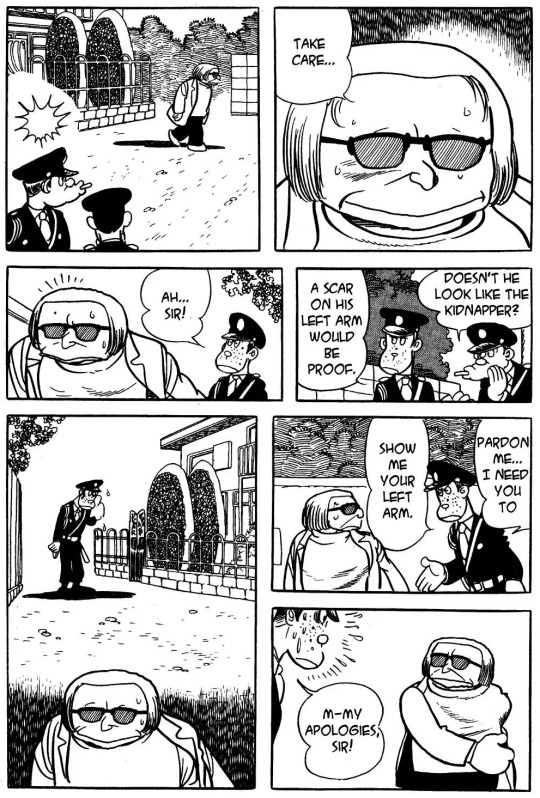
#aaaand the ending I found so unsettling the kidnapper passing by the kid's home and he recognizes Akira but Akira's repressed it I guess#yeeeeeesh. I think it especially creeped me out because I got the impression he lived nearby but there isn't any indication he does#this likely is the only time he'll cross paths with him quite some time later and he doesn't even talk to him so okay fine but eeep........#Black Jack#Osamu Tezuka#abduction *#kidnapping *#Black Jack's op saved his life twice : D;#police officers#classic manga#butterflies#insects *
4 notes
·
View notes
Link
Activists in Atlanta and across the country have for years opposed the construction of the Atlanta Public Safety Training Center, dubbed “Cop City,” which was deeply unpopular with residents since its first announcement in June 2021. The proposed training ground would cut down part of Atlanta’s South River Forest (also called the Welaunee Forest) to build, in part, a mock city for police across the nation to practice repression tactics.
#StopCopCity#Atlanta#repression#arrests#frame-up#killer cops#racism#environmental racism#Cop City#Welaunee Forest#police brutality#Struggle La Lucha
61 notes
·
View notes